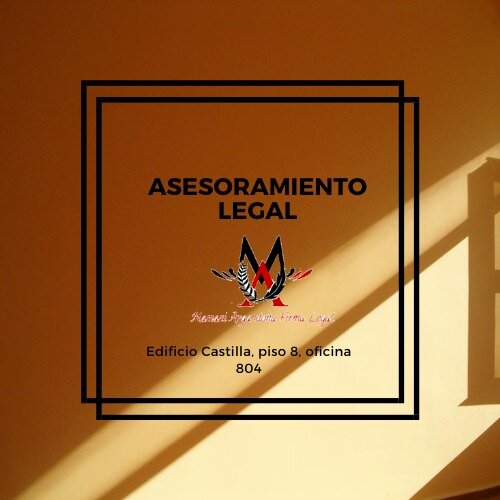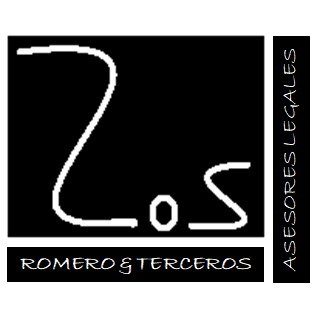Best Restructuring & Insolvency Lawyers in Bolivia
Share your needs with us, get contacted by law firms.
Free. Takes 2 min.
Or refine your search by selecting a city:
List of the best lawyers in Bolivia
About Restructuring & Insolvency Law in Bolivia
Restructuring and insolvency law in Bolivia provides a legal framework for helping businesses and individuals address severe financial distress. This field focuses on facilitating either the recovery or orderly liquidation of debts when a debtor is unable to meet their obligations. Bolivian law aims to balance the interests of debtors, creditors, and other stakeholders through court-supervised or administrative procedures. These processes prevent unfair treatment of creditors, encourage business recovery where possible, and manage assets equitably in case of liquidation.
Why You May Need a Lawyer
Dealing with financial distress, whether as a business owner or individual, can be complex and stressful. You may need a restructuring and insolvency lawyer in Bolivia for several reasons, such as:
- If your business cannot pay its debts and you require guidance on available legal remedies.
- To negotiate with creditors and explore out-of-court restructuring or refinancing options.
- To initiate or respond to insolvency proceedings in court.
- To understand your rights and options if you are a creditor seeking to recover unpaid debts.
- If you need to prevent asset seizures during financial hardship.
- When you need to ensure compliance with complex legal requirements during restructuring or liquidation.
- If you are facing cross-border insolvency or have assets and liabilities in multiple jurisdictions.
A legal expert ensures you follow the appropriate procedures, maximize the chances of recovery, and avoid further legal complications.
Local Laws Overview
Restructuring and insolvency in Bolivia are primarily governed by the Commercial Code, particularly the sections on insolvency (quiebra) and concordato preventivo. Key aspects include:
- Concordato Preventivo: This is a legal process where debtors propose a plan to restructure or reduce their debts, subject to creditor approval and court oversight. If successful, it allows a business to continue trading.
- Quiebra (Bankruptcy): If restructuring is not possible, the bankruptcy process involves liquidating assets under court supervision to pay creditors according to a statutory order of priority.
- Creditor Rights: Creditors have the right to file claims, participate in creditors' meetings, and influence decisions regarding the restructuring or liquidation process.
- Asset Protection: Once proceedings begin, certain protections and restrictions apply to prevent unfair disposal of assets or favoritism among creditors.
- Cross-Border Issues: While Bolivia has limited provisions regarding cross-border insolvency, some international principles may be applied with court approval.
- Insolvency Practitioners: Trustees or administrators are appointed by the court to oversee the process, ensure fair conduct, and report to the judge and creditors.
Strict deadlines, documentation, and procedural requirements are enforced throughout the process. Failure to comply can result in unfavorable outcomes or legal liability.
Frequently Asked Questions
What is the difference between restructuring and insolvency?
Restructuring refers to legal processes aimed at reorganizing debts, often allowing the debtor to continue operations. Insolvency typically means the debtor cannot pay their debts and may enter proceedings leading to asset liquidation.
Can individuals file for insolvency or is it only for businesses?
Both businesses and individuals can seek relief under Bolivia’s insolvency laws. The procedures and requirements may vary depending on the type of debtor.
How long does the restructuring or insolvency process take in Bolivia?
The timeline depends on the complexity of the case, the volume of debts, and court schedules. Generally, restructuring can take several months, while liquidation may take longer due to asset sales and creditor claims adjudication.
What happens to my assets during insolvency proceedings?
Once proceedings start, your assets are typically placed under court supervision. Unauthorized transfers, sales, or pledges are prohibited. In bankruptcy, assets are sold to pay creditors.
Are all debts included in the restructuring or insolvency process?
Most unsecured and some secured debts are included. However, there are exceptions for certain tax obligations, social security payments, and legally protected claims.
Can restructuring stop debt collection or lawsuits?
Yes, the initiation of official restructuring often triggers a suspension of legal actions and debt collection efforts while the process is ongoing.
Do creditors always get fully paid in insolvency?
No, payments are made according to the priority established by law. Often, unsecured creditors receive only a portion of the amounts owed, while some may not receive any payment after priority creditors have been satisfied.
What role does the court play in insolvency cases?
The court oversees the process, appoints administrators or trustees, approves restructuring plans or liquidation schedules, and resolves disputes between parties.
Is it possible to reverse or challenge the court’s decisions?
Some decisions may be appealed within specific timeframes, but many procedural steps are final once approved, especially if creditors and other parties agree.
Do I have to appear in court for insolvency proceedings?
The debtor or their legal representative will be required to appear at certain stages, such as presenting the restructuring plan or responding to creditor claims.
Additional Resources
If you need further information or assistance, consider reaching out to the following resources:
- Bolivian Ministry of Justice (Ministerio de Justicia y Transparencia Institucional): Provides information about legal processes and official guidance.
- Local Commercial Chambers: Offer awareness programs and networking that may assist businesses in distress.
- Judicial Branch of Bolivia (Órgano Judicial): Manages insolvency proceedings and provides case information.
- Professional Bar Association of Bolivia (Colegio de Abogados): Can help find qualified legal professionals specializing in insolvency and restructuring.
- Accounting and Financial Advisory Firms: Many offer guidance and referrals relevant to insolvency processes.
Next Steps
If you are facing financial distress or imminent insolvency, consider taking these steps:
- Gather all relevant financial records, contracts, and correspondence related to your debts and assets.
- Consult a lawyer experienced in restructuring and insolvency in Bolivia to review your situation and advise on available legal options.
- Discuss potential out-of-court solutions with your lawyer before initiating formal proceedings.
- Be proactive and honest about your financial position when seeking legal advice or negotiating with creditors.
- If instructed to proceed with restructuring or insolvency, promptly follow your lawyer’s guidance and meet all deadlines and legal requirements.
Timely professional advice is critical to improving outcomes and safeguarding your rights. Do not delay in seeking help if you believe restructuring or insolvency may be necessary.
Lawzana helps you find the best lawyers and law firms in Bolivia through a curated and pre-screened list of qualified legal professionals. Our platform offers rankings and detailed profiles of attorneys and law firms, allowing you to compare based on practice areas, including Restructuring & Insolvency, experience, and client feedback.
Each profile includes a description of the firm's areas of practice, client reviews, team members and partners, year of establishment, spoken languages, office locations, contact information, social media presence, and any published articles or resources. Most firms on our platform speak English and are experienced in both local and international legal matters.
Get a quote from top-rated law firms in Bolivia — quickly, securely, and without unnecessary hassle.
Disclaimer:
The information provided on this page is for general informational purposes only and does not constitute legal advice. While we strive to ensure the accuracy and relevance of the content, legal information may change over time, and interpretations of the law can vary. You should always consult with a qualified legal professional for advice specific to your situation.
We disclaim all liability for actions taken or not taken based on the content of this page. If you believe any information is incorrect or outdated, please contact us, and we will review and update it where appropriate.
Browse restructuring & insolvency law firms by city in Bolivia
Refine your search by selecting a city.

















